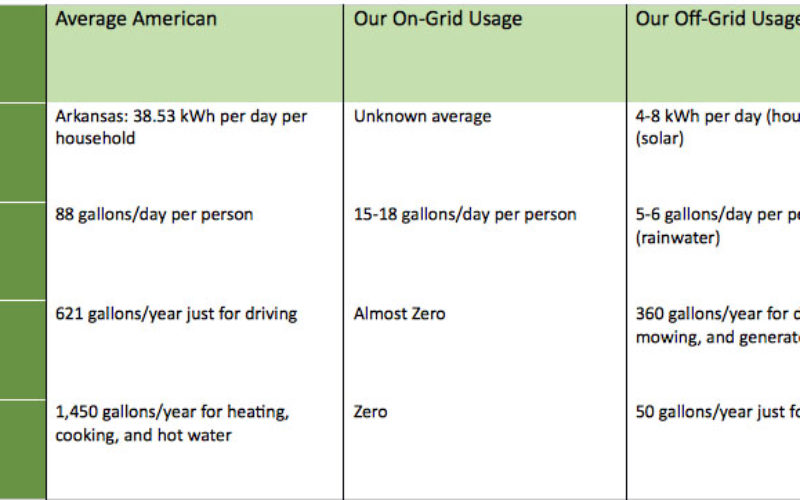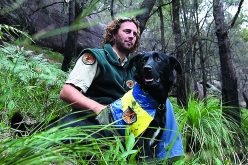AMANDA BANCROFT
Making Ripples
The journey to move off the utility grid into a solar-powered cabin has so absorbed the bulk of our time over the past three years that we forgot to measure the change in our ecological impact, or “footprint,” until now. My husband Ryan and I finally sat down to compare our past and current consumption of propane, electricity, gasoline and water to the average American’s.
Our household water consumption evaporated to zero while our annual gasoline consumption exploded from nearly zero to about half of what the average American uses in a year. Our max daily household electricity consumption is shockingly lower than the average household’s. But inadequate solar-powered electric heaters fueled a need to switch to propane, which we never used before living off grid.
We use a 20 pound (5 gallon) propane tank refilled at Tractor Supply Co. every two weeks during winter months, or a little over 10 tanks (50 gallons) in a year. According to Couch Oil Company, which did not cite a source, “the average homeowner uses between 200-300 gallons of propane per year for hot water and approximately 1,250 gallons annually for heating and cooking.”
Besides the propane to heat just the air in our home, our cabin is entirely solar-powered electric (hot water, lights, fridge, etc). According to the Energy Information Administration (EIA), Arkansas households use on average 1,156 kilowatt hours per month or 38.53 kWh per day. Our off-grid household electricity consumption never exceeds 11 kWh per day, usually in summer when we run air conditioning. We average 4-8 kWh per day year-round. Passive demand (the appliances’ consumption while the cabin is unoccupied by people) is as low as 2-3 kWh/day, comparable to our former city apartment all-time low of 3kWh/day.
We hardly used any gasoline at all before moving off-grid, because we lived in a city apartment without owning a car or lawn mower. We walked, took the bus or biked everywhere, and occasionally we would rent a car. Today we own a car (2001 Toyota Avalon, 18-19 mpg in the city, 25-30 mpg on the highway), a Husqvarna riding mower (25 gallons/year), and an electricity generator that we run about 30 times in winter and 5-7 times during the rest of the year (80 gallons of gas/year). Per year, we consume 360 gallons of gasoline total. According to the EIA’s website updated in October of 2020, “in 2019, Americans used about 142 billion gallons of motor gasoline.” Because there were 228,680,000 licensed drivers in 2019, that’s an average of 621 gallons per person for that year.
One hundred percent of our water comes from rain. Any time we cook, shower, wash our hands, or take a drink, that is rainwater. We never flush water down the drain, thanks to a no-flush composting toilet. Mostly because of flushing toilets, even our conservative use of 30-36 gallons/day (15-18 gallons per person) of water on the grid was more than today’s 10-12 gallons/day (5-6 gallons per person) of rainwater consumption. The reduction is partly due to constraints on our supply: we used to shower almost daily; now, we shower once or twice weekly depending on sunshine to heat the water and the level of rainwater in our 550 gallon cistern. According to the Environmental Protection Agency in 2018, “each American uses an average of 88 gallons of water a day at home.” The household average is 300 gallons per day!
It was surprising to discover that moving off the grid was not an exclusively beneficial action to take for the environment (and subsequently, the well-being of the world’s people). Hopefully, you find it encouraging to see ways in which you might do much better than we do (by utilizing bicycle commuting and other city-based perks). Reducing our carbon footprint is less of a pinnacle peak of perfection to strive toward, and more of an Ozark plateau with many hollers and hills for the determined hiker to cross.
Amanda Bancroft is a writer, artist, and naturalist living in an off-grid tiny house on Kessler Mountain. She and her husband Ryan blog about their adventures and offer tips to those wanting to make a difference at www.RipplesBlog.org.










